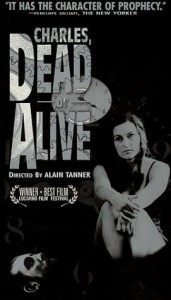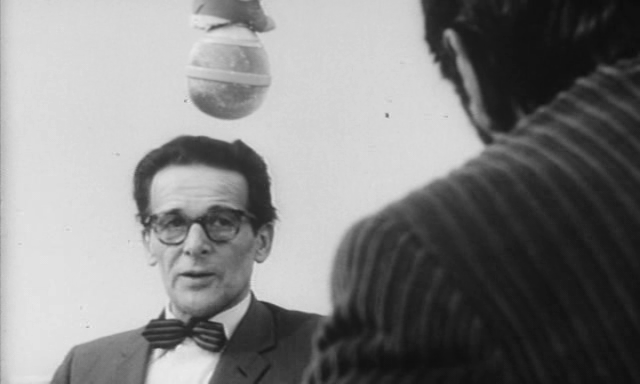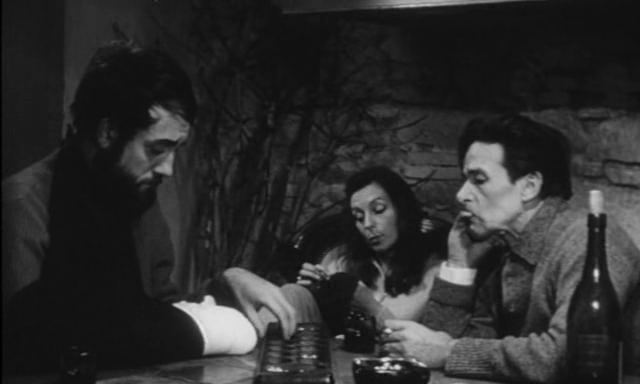“Each of us is defined by what he does. This being the case, the only thing left for me is to undo myself neatly.”
|

Synopsis:
On the 100th anniversary of his family’s watchmaking company, Charles De (Francois Simon) experiences a midlife crisis and runs away from home. His family hires a private investigator (Walter Schochli) to look for him; in the meantime, Charles enjoys his new life with a young Bohemian couple (Marcel Robert and Marie-Claire Dufour) he has met by chance.
|
|
Genres, Themes, Actors, and Directors:
- Counterculture
- Midlife Crisis
- Search
- Swiss Films
Review:
Swiss director Alain Tanner’s feature debut isn’t quite as accessible as his later masterpieces — such as Jonah Who Will Be 25 in the Year 2000 (1976 — but nonetheless effectively showcases his signature style and themes. The smart, literate script is primarily concerned with showing us the inner transformation of the title character (well-played by Francois Simon), doing so through an insightful, sometimes humorous presentation of divergent lifestyle choices. While it may not be for all tastes, Charles… remains recommended viewing for all film fanatics.
Redeeming Qualities and Moments:
- Francois Simon as the soul-searching businessman

- Effective b&w cinema verite camera work

Must See?
No, though it’s certainly worth a look as Tanner’s feature debut, and for holding a special place in the history of Swiss cinema.
Links:
|



One thought on “Charles, Dead or Alive (1969)”
First viewing. Not a must – but I will concede that particularly adventurous ffs who are at all curious about the history of Swiss cinema may find that it is not an uninteresting work.
~ultimately, though, I don’t completely buy this particular film. In its own indie-esque way, it has a satisfying premise: a man, who finds himself suffocating in a family business he inherited – who, in fact, has long realized this (he even started wearing glasses, though he didn’t need them – in order “to see less clearly”), finally opts out and goes off in search of himself.
Fine, so far. And, indeed, the earlier section, in which the premise is put in place, plays out rather well. I do especially like the sequence in which the protagonist agrees to be interviewed on local tv and, thus – to the ‘horror’ of his money-minded son – relates in precise detail the extent of his long-harbored ennui.
As well, when Charles takes up his ‘new life’ with the non-conformist couple (who eventually more appropriately refer to him as ‘Carlo’), it is somewhat refreshing to watch him shed his dissatisfaction and start anew.
But does he know how to do that? The rest of the film, for me, enters into a kind of intellectual headiness that suggests the film is best viewed on a non-realistic level. (How is one to take the fact that the men in this non-sexual menage resort to childishness and bickering?) To a degree, Tanner seems to slowly turn it to the audience to conclude where Charles is going – or thinks he’s going – in his mind.
I’m not saying the end result doesn’t work on some level. It just doesn’t work for me.
[I believe I’ve only seen one other Tanner work, his 1983 film, ‘In the White City’, which bears resemblance to ‘Charles…’. I don’t recall being all that engaged but I believe it was pretty to look at. …Perhaps I can’t share the soul of a discontent drifter?]